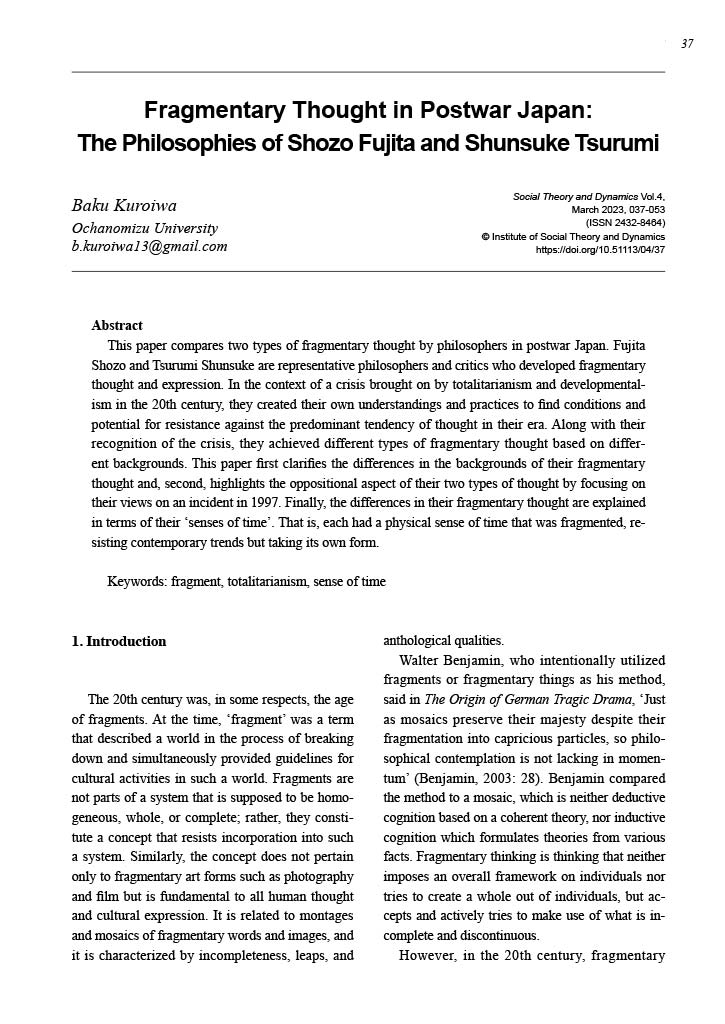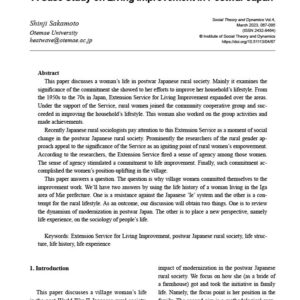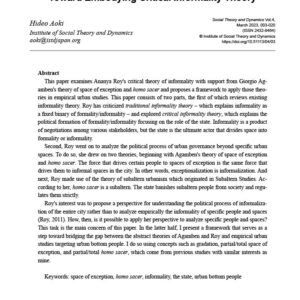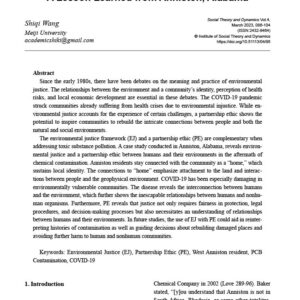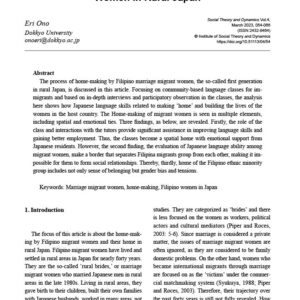Description
This paper compares two types of fragmentary thought by philosophers in postwar Japan. Fujita Shozo and Tsurumi Shunsuke are representative philosophers and critics who developed fragmentary thought and expression. In the context of a crisis brought on by totalitarianism and developmentalism in the 20th century, they created their own understandings and practices to find conditions and potential for resistance against the predominant tendency of thought in their era. Along with their recognition of the crisis, they achieved different types of fragmentary thought based on different backgrounds. This paper first clarifies the differences in the backgrounds of their fragmentary thought and, second, highlights the oppositional aspect of their two types of thought by focusing on their views on an incident in 1997. Finally, the differences in their fragmentary thought are explained in terms of their ‘senses of time’. That is, each had a physical sense of time that was fragmented, resisting contemporary trends but taking its own form.

